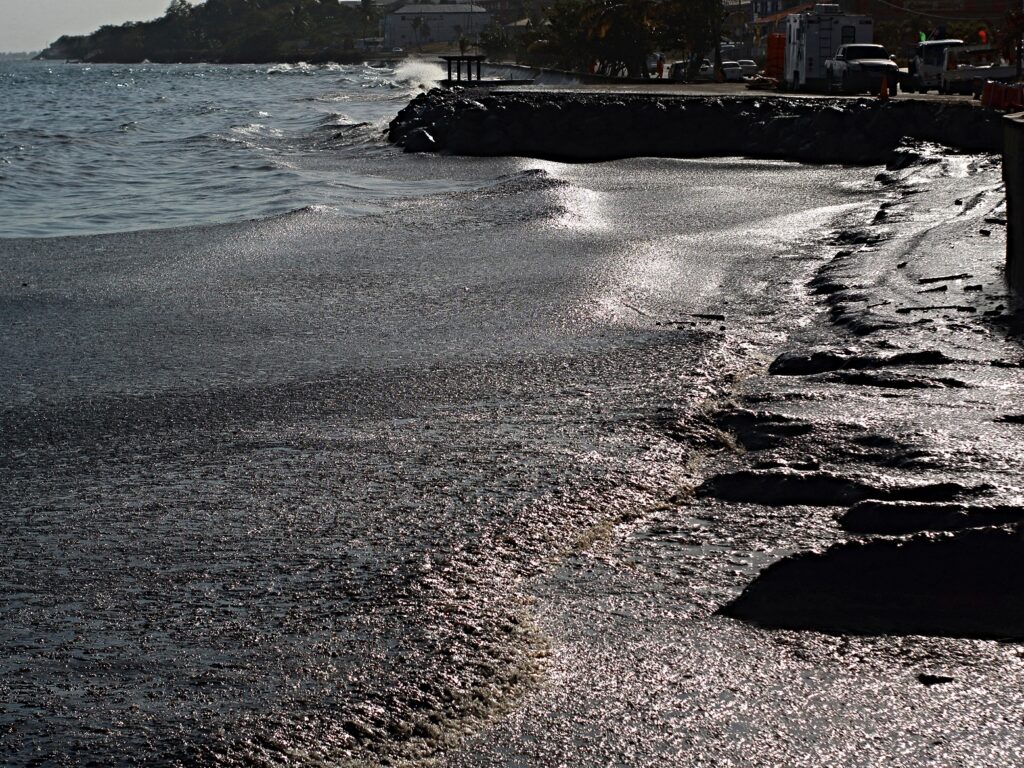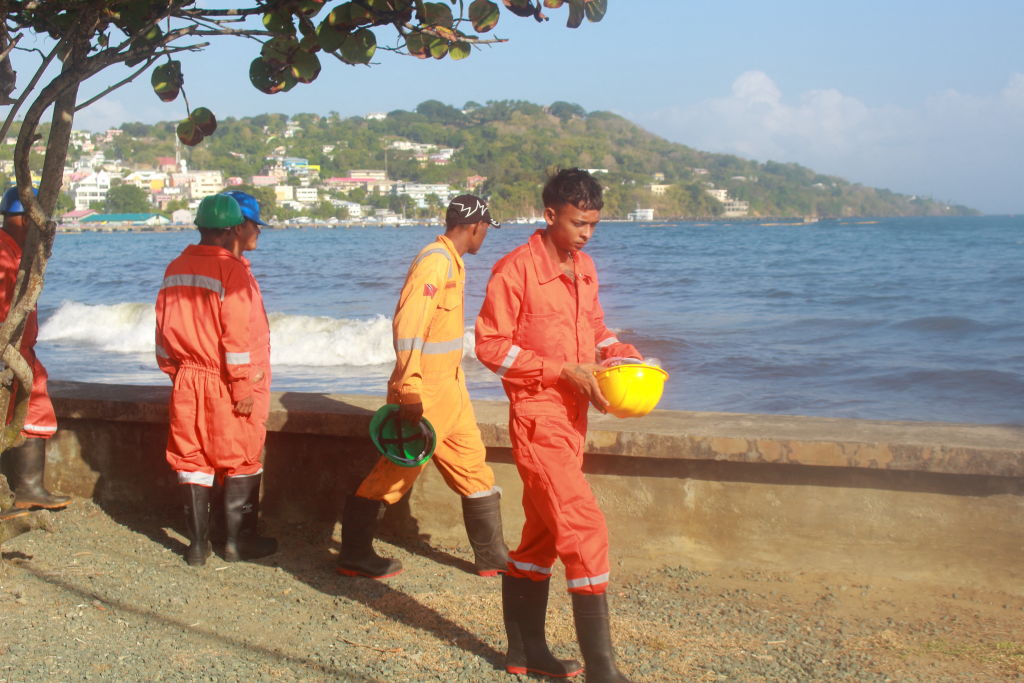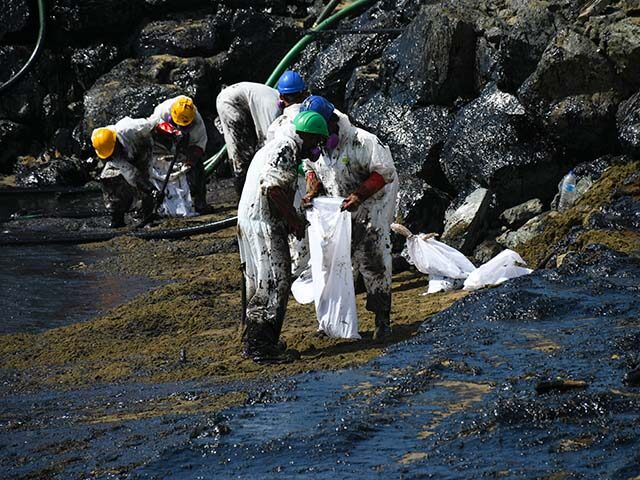Authorities in Trinidad and Tobago continued investigations on Thursday into the mysterious “ghost ship” that capsized in unknown circumstances, causing a large offshore oil spill that is now threatening its neighbors.
Last week, a ship of unknown origin identified only as Gulfstream – with no known origin, destination, flag, or crew – was found abandoned near Tobago’s shores, leaking an oil-like substance that affected about ten miles of Tobago’s southwest coastline.

View of the oil spill at Rockly Bay in Tobago island, Trinidad and Tobago, on February 10, 2024. (Clement Williams / AFP)
The incident prompted the government of the Caribbean nation to declare a state of emergency, as local cleanup crews attempted to contain the leak and clean the affected beaches. Authorities launched an investigation into the origins of the vessel to determine, among other pieces of information, the nature of the leaking substance.
On Wednesday, Trinidad and Tobago’s Ministry of National Security announced in a statement that, by reviewing satellite imagery, it had determined that the capsized Gulfstream vessel was one of two vessels involved in the incident.
A second vessel, a tugboat of Panamanian origin identified as Solo Creed, was spotted towing an object on February 4 — three days before locals first spotted the capsized Gulfstream vessel.

Workers leave after their cleaning work could not be done due to the high tide after an oil spill at Rockly Bay in Tobago island, Trinidad and Tobago, on February 10, 2024. (CLEMENT WILLIAMS/AFP via Getty Images)
The investigation found that both vessels were allegedly en route to Guyana. Guyanese authorities confirmed that “neither vessel arrived as anticipated” to the South American country nor did they approach its waters.
According to the statement, the identity of both vessels was confirmed with further images of both vessels provided by Dutch authorities in Aruba.
“We have been working very closely with the Guyana Coast Guard on this critical matter and we appreciate their full-scale support. Similarly, I am appreciative of Caricom IMPACS and the work and support of our international partners in this matter,” National Security Minister Fitzgerald Hinds said in the statement.
“As Minister, I give the assurance that the [Trinidad and Tobago Coast Guard] will continue to work with other local and regional authorities in this investigation, and we look forward to a swift and successful resolution to all our benefit,” he concluded.
The leak, which reportedly has not been contained yet, is at press time being carried by the waves deeper into the Caribbean Sea, passing Venezuela’s northern coast.
Tobago’s Emergency Management Agency (TEMA) has warned that, as a result of the waves, the spill could now endanger other local beaches that have coral reefs and could eventually affect the coasts of other countries.
“The satellite showed that some of it was moving into the Caribbean Sea, as well as some of the modeling,” TEMA director Allan Stewart told Reuters on Thursday.
Local authorities continued to assess Tobago’s mangroves and beaches on Thursday after the Petit Trou lagoon was considered to be in an “extremely vulnerable” position as of this week.
The chief secretary of Tobago’s House of Assembly, Farley Augustine, publicly called for the yet-to-be-identified persons responsible for the oil spill to pay for the damages caused and the clean-up costs.
“This situation should not result in a paradise lost, certainly not for Tobago,” Augustine told reporters Wednesday. “But we need those responsible to come clean and we need those responsible to know that they have to pay for this mess, that they are culpable as part of this mess.”
“We have a lot of questions. So now is the best time to have those questions answered because, for starters, we need to know the quantity of material so we know what we have been dealing with, what we have been walking in, what we have been swimming in, what we have been trying to clean-up from our shores,” he continued. “I want to know how much they would pay for this.”

COMMENTS
Please let us know if you're having issues with commenting.